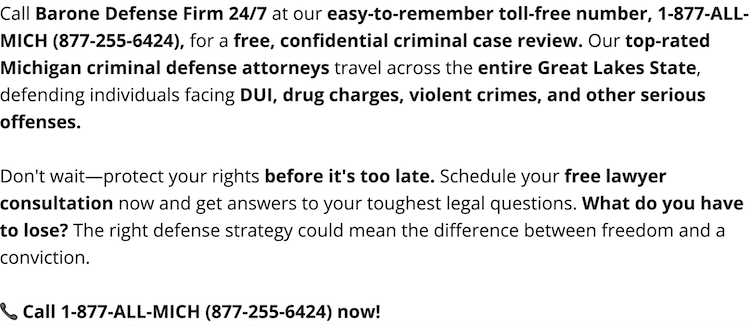Marijuana License Application Steps
As the decriminalization of marijuana and the acceptance of medical marijuana become widespread in the United States, it is important to make sure that your medical marijuana business is in compliance with current rules and regulations. There are different types of commercial licenses you can apply for, based on what kind of business you intend to run (transporting, distributing, growing, etc.). In order to apply, it is vital that you know of the necessary preliminary Michigan marijuana license application steps, so you can be well on your way to running a legitimate medical marijuana business. If you want to know more about the application process, or you have any other questions about Michigan commercial marijuana licenses, speak with a qualified medical marijuana lawyer who can help.
Background Checks for all EmployeesOne of the first Michigan marijuana license application steps a business owner must follow is running background checks on all potential employees. An individual may not hire anyone to work for their business, in any capacity, if they have a controlled substance-related felony within the past 10 years. However, the Michigan State marijuana board may allow someone to hire such an employee provided that the employer/business owner notifies the Board and they give the employer permission.The business owner must complete a background check, subject to the laws of Michigan, just as the employees must.
Proof of Financial Responsibility:An individual will not be able to obtain a license without first providing proof of their financial responsibility, which in this context is essentially proof of liability insurance. The Act specifically requires medical marijuana business owners to obtain insurance to reimburse someone for bodily injury suffered because of the manufacture, distribution, transportation, or sale of adulterated marijuana or adulterated marijuana-infused product. The insurance must be for at least $100,000.
However, since obtaining insurance can be difficult considering marijuana remains a Schedule 1 drug, the proof of financial responsibility may be in the form of cash or unencumbered securities or a constant value bond. People are not allowed to cancel their insurance as required unless they give 30 days' notice to the department, and provide a reasonable and acceptable substitute.
Adulterated MarijuanaFor purposes of liability under this Act, the term adulterated marijuana refers to a product sold as marijuana that contains a chemical or biological matter other than marijuana that causes an adverse reaction. The law does not define what is and is not an adverse reaction, so it is likely that this will be litigated in the future. In the meanwhile, it is important to be aware that appropriate compliance testing at a reputable licensed testing facility is a must because it will help protect business owners against false claims of adverse reactions.
There is also an exception to what is covered as a bodily injury and that relates injuries that may result in the normal course of the long-term use of marijuana or marijuana-infused products. This includes any adverse effects from smoking marijuana, so long as same is not a result of an adulteration of the product.
Compliance with Tracking Act:As a license holder in Michigan, an individual must comply with all aspects of the Act, and this includes compliance with the Marijuana Tracking Act ("MTA"). The MTA requires that growers use a seed-to-sale cloud-b based computer application approved by the State of Michigan.
The system(s) available have not yet been chosen, and are on RFP status at present. This tracking act requires the use of a statewide monitoring system which is an Internet-based, statewide database. This system will be established, implemented, and maintained by the state of Michigan under the tracking act. The system must be available to licensees, law enforcement agencies, and authorized state departments and agencies on a 24-hour basis.
The tracking system will be used for (i) verifying registry identification cards, (ii) tracking marijuana transfer and transportation by licensees, including transferee, date, quantity, and price, (iii) verifying in commercially reasonable time that a transfer will not exceed the limit that the patient or caregiver is authorized to receive under section 4 of the Michigan Medical Marijuana Act. If you want to know more about the Act, or want to know which Michigan marijuana license application steps to take in order to legitimize your business, get in touch with a seasoned medical marijuana lawyer that can guide you through this process.
 Barone Defense Firm Home
Barone Defense Firm Home




















